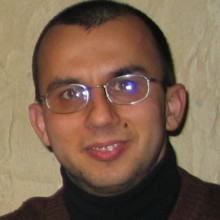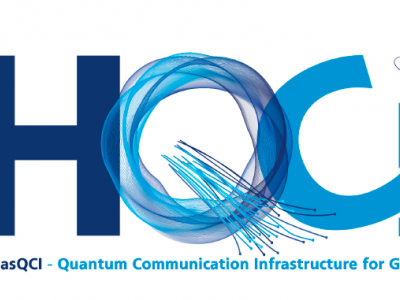
Dr. Georgios Nikolopoulos received his PhD in 2001 from the University of Crete. His PhD work was focused on the dissipative dynamics of small quantum systems, which are coupled to continua that exhibit an unconventional density of states and do not allow for standard (e.g., Born and Markov) approximations. In 2003, after his military service, he moved to TU Darmstadt where he worked as a research associate in the framework of FP6 IP SECOQC project, which focused on the development of a global network for secure communication based on quantum cryptography. Dr. Nikolopoulos joined IESL/FORTH as a Junior Researcher in 2007, and his research activities span a broad range of topics including quantum linear and non-linear optics, quantum communication, quantum cryptography, and ultracold quantum gases. In 2019 he was invited to participate as a Mercator Fellow in SFB CROSSING "Cryptography-based security solutions: Enabling Trust in New and Next Generation Computing Environments".
Education
- 2001: PhD in Physics, University of Crete, Greece
- 2001: MSc in Microelectronics-Optoelectronics, University of Crete, Greece
- 1996: Diploma in Physics, University of Patras, Greece
Career
- 2014 - today: Principal Researcher, Institute of Electronic Structure & Laser, FORTH, Heraklion, Greece
- 2011-2014: Assistant Researcher, Institute of Electronic Structure & Laser, FORTH, Heraklion, Greece
- 2007-2011: Junior Researcher, Institute of Electronic Structure & Laser, FORTH, Heraklion, Greece
- 2003-2006: Research Associate, Institut fuer Angewandte Physik, Technische Universitat Darmstadt, Germany
- 1997-1999: Max-Planck Research Fellow, Max-Planck Institut fur Quantenoptik, Garching, Germany (two semesters)
Interests
- Quantum Communication and Cryptography
- Quantum Information Processing
- Quantum Optics
Awards/Prizes/Distinctions
- 2022: Mercator Fellow, SFB CROSSING “Cryptography-Based Security Solutions: Enabling Trust in New and Next Generation Computing Environments”
- 2019: Mercator Fellow, SFB CROSSING “Cryptography-Based Security Solutions: Enabling Trust in New and Next Generation Computing Environments”



